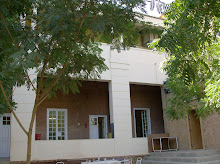Southern Sudanese get more time to register for referendum voting
November 26, 2010 (KHARTOUM) – The South Sudan Referendum Commission (SSRC) today issued an unexpected decision to extend the registration period for eligible voters by an extra week until December 8th.
Southerners inside Sudan and abroad began registering for the referendum on November 15, a key phase in the lead-up to the historic vote. It is estimated that there are five million people are eligible to register for the vote.
So far more than one million Southerners have registered for voting with very weak turnout in the North of the country.
The nine-member commission headquartered in Khartoum justified the extension by noting delays in delivering additional registrations materials needed to address shortfall in some of the centers which experienced more turnout than anticipated.
“The south Sudan referendum bureau would like to assure that the decision to extend the voter registration process was a decision taken by the referendum commission after holding discussion with all its members and was for technical reasons,” Achier Deng, South Sudan Referendum Bureau (SSRB) Commissioner for Operations told a press conference in Juba, the South Sudan capital.
The commission, however, stressed that the extension does not affect the scheduled date on which the plebiscite would take place of January 9, 2011.
This contradicts assertions of SSRC chief Mohamed Ibrahim Khalil recently in which he said that even the slightest delay in registration process could force pushing the vote date.
“The extension will allow more time for those who were unable to register because of lack of materials to be registered and therefore the extension is in the interest of all eligible voters allowing for the maximum participation in the process,” Achier said.
The ruling National Congress Party (NCP) has been pushing for extending the registration period and expressed frustration with the low turnout in the North. It also accused the Sudan People Liberation Movement (SPLM) of intimidating voters in the North to ensure that they don’t register and boost chances of a pro-independence vote.
The Sudanese information minister Rabie Abdel-Aati Obeid on Friday said the extension was necessary to allow the referendum commission to organize a credible vote.
“At the beginning of this phase of registration, the turnout, even in the south and north, was not satisfactory due to obstacles. Some of these were created by some elements, especially in the northern states, terrorizing and threatening. Also, Eid days (Muslim holiday), vacations, the movement of people outside the cities are far away from registration centers, this affected the registration,” Obeid said.
“In addition, there were some obstacles already shown by the referendum commission saying that alot of facilities were not provided, financial support was not provided and some other logistic needs” he added.
2 MINISTERS FAIL TO REGISTER DUE TO SHORTAGE OF MATERIALS
On Thursday, an embarrassing situation occurred when Pagan Amum, the Minister for Peace and Comprehensive Peace Agreement (CPA) Implementation was unable to register at the center he had visited, after officials ran short of voters’ registrations materials.
Deng Alor, the minister in charge of Regional Cooperation also visited the same center on Friday morning, but also could not register since the materials had not yet been brought to the center.
The Juba registration center, located at Dr. John Garang mausoleum is the very one that registered South Sudan’s President, Salva Kiir Mayardit on November 15.
Both Amum and Alor, who arrived close to mid-day, were eventually registered as they proudly displayed their voter’s cards, chanting “freedom Oyee”.
Manyang Malook Akot, the head of the center attributed the shortage of registration materials to “slow response” from the referendum state high committees established by SSRB.
“According to the usual procedure, we are supposed to report shortage of registration materials to the state sub-committee who will forward out issues to the referendum high committee at state levels, before it reaches the bureau. But sometimes they take long to respond to our requests,” Akot told Sudan Tribune from the Juba-based mausoleum.
But SSRB official Achier Deng attributed the shortage of registration materials to overwhelming turnout by potential voters.
SSRB, according to him is closely working with the all the state high committees and counties to address the communication problems. Specifically, he said the bureau has formed special reporting teams whose tasks are to visit referendum centers, record figures and report back the number of registrants and needs for additional materials as a matter of urgency.
Currently, Southern Sudan alone has 2,623 registration centers while the north of the country has only 165.
Meanwhile, the referendum commission has now given a go ahead for its team to register prisoners detained in the various detention centers. The process, according to the referendum bureau, is expected to begin shortly depending on the location and availability of materials.
“As part of the process of registering prisoners, we shall have mobile teams dispatched to the various prison locations. The aim of this is to allow everyone, including prisoners to participate in next year’s referendum exercise,” Mr. Achier told journalists.
However, although officials from the bureau acknowledged what they described as the peaceful and smooth registration process, it still appealed to women to turn up in large numbers and register.
The first week of voters’ registration recorded very low turnout of women, yet they constitute nearly 60% of the population, according to statistics from Sudan’s 5th Population Census and Housing results conducted in 2008.
Reacting to this, Achier said, “As the turnout of women remain a concern, we reiterate our appeal to allSudanese women to come out and register and all men to support their wives, mothers, sisters and daughters in coming out to register.”
The referendum for the possible independence of the south remains a key part of Sudan’s 2005 Comprehensive Peace Agreement (CPA); the accord that ended over two-decades of a bloody civil war fought between north and south.
Σάββατο 27 Νοεμβρίου 2010
Εγγραφή σε:
Σχόλια ανάρτησης (Atom)












Δεν υπάρχουν σχόλια:
Δημοσίευση σχολίου